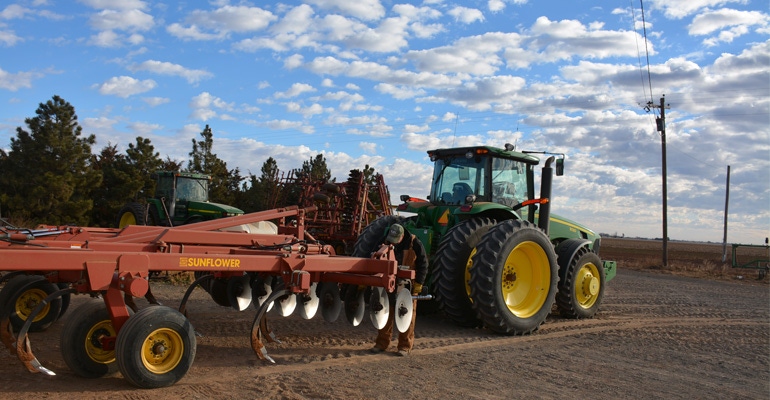
If it's a trade war you want, it's a trade war you'll get.
That's paraphrasing a response from China's embassy in Washington last week in response to President Trump targeting over 1,300 Chinese exports for tariff earlier this month. In traditional Chinese style, the warning was issued in much friendlier language, a polite response – but perhaps a strong warning.
"As the Chinese saying goes, it is only polite to reciprocate," the embassy noted after Trump's announcement.
Chinese officials in Beijing echoed those polite sentiments later, saying they fully intend to take up the matter with the World Trade Organization and will subsequently impose "corresponding measures of equal scale and strength" again U.S. products traded to China.
Already China has confirmed they will enact tariff requirements on several U.S. goods, specifically an increase in tariffs by up to 25 percent on 128 U.S. products, from frozen pork and wine to certain fruits and nuts and more. Chinese officials say the tariffs will target up to $3 billion in U.S. goods, but warns additional U.S. exports are subject to be included depending on the U.S. response.
Some say the current trade dispute and subsequent trade war with China will be little more than a tit-for-tat exchange, meaning "equivalent retaliation from both sides." As President Trump imposes tariffs on Chinese exports, the Chinese will respond with an equal number of tariffs on U.S. goods, according to some analysts a push and shove contest that in reality nets little or no gains for either side.
None-the-less, the threat of a U.S. trade war with China (which officially would begin only after a May 15 public hearing in the U.S. concerning the president's tariff recommendations against China). But that hasn't stopped verbal rhetoric and barbs from trade officials on both sides of the issue.
In the interim, U.S. producers, including the U.S. agriculture industry and its many support groups, have expressed major concerns over possible planned Chinese tariffs on U.S. agricultural products, including pork and soybeans among others.
But earlier this week President Trump asked the U.S. Department of Agriculture for options to assist farmers negatively impacted by the recent trade developments, an apparent effort to boost the support of U.S. farmers who are increasingly more concerned over a potential major trade war, not only with China, but potentially with Mexico, Canada and others.
Keith Good, social media manager at the University of Illinois' Farm Policy News, is reporting President Trump is blaming former administrations for forcing his White House to deal with "unfair" trade agreements like NAFTA and open trade imbalances with China.
Good says while the president recognizes a trade disagreement with China is "troubling for U.S. farmers," he promises to make it up to them by providing some level of additional support.
White House Press Secretary Sarah Huckabee Sanders alluded to the possibility of additional farm support during a press conference on April 9.
"The president will present a plan on specifics on that shortly," Sanders told reporters.
But Bloomberg reported earlier this week that leading lawmakers on congressional agriculture committees said they are skeptical that the White House can fix any economic harm for farmers arising from a trade dispute with China by giving them temporary aid through USDA, a sentiment also expressed by Republican Senator Pat Roberts of Kansas, chairman of the Senate Agriculture Committee.
"We don’t need another subsidy program, we need to sell our product. If we do that, we don’t need some sort of crazy-quilt program," Roberts told reporters.
Skeptics also quickly responded that any special programs like tapping the Depression-era’s Commodity Credit Corporation, established in 1933 to help stabilize family farm incomes through a price-support system, would only further increase the federal debt and could only be sustained for a short period of time.
Farm groups are suggesting the best solution is to not start a trade war.
At a Senate Appropriations Agriculture Subcommittee hearing this week member Tammy Baldwin (D., Wis.) asked USDA Secretary Sonny Perdue if recently passed omnibus legislation that provided USDA with additional resources to address the impacts of retaliatory tariffs on agricultural products would be used to assist farmers affected by Chinese tariffs.
"Obviously our first goal is to negotiate ourselves out of the saber rattling that’s occurred and to make sure that these market disruptions don’t have a permanent impact," Perdue responded.
Farmers now must wait and see if such aid will be made available or even needed, depending on the next possible elevation of trade tensions with China and other U.S. trade partners.
Wednesday, April 11, Americans for Farmers & Families (AFF) released a statement from Casey Guernsey, a farmer and former member of the Missouri State House who leads AFF’s "Retaliation Hurts Rural Families" initiative, following a House Ways and Means Committee Hearing regarding the effects on the U.S. economy and jobs of the tariff increases related to Section 232 and Section 301 investigations.
"I appreciate the committee taking time to listen to expert testimony on the negative impact retaliatory tariffs will have on jobs and the U.S. economy, particularly with regards to the agriculture community. As my own written testimonial explains, China has become the largest customer for America's farm products, buying well over $20 billion per year. Losing access to this important market will restrict access to millions of customers and billions of dollars."
Guernsey said he recognizes and appreciates President Trump’s commitment to protect American interests through trade and says he is thankful the president is listening to the agricultural community and other associated industries.
"[But] We need to roll back trade policies that close markets and work to modernize current trading deals, such as the North American Free Trade Agreement, which stands to help the rural communities that have placed their trust in him thus far," he added.
About the Author(s)
You May Also Like




